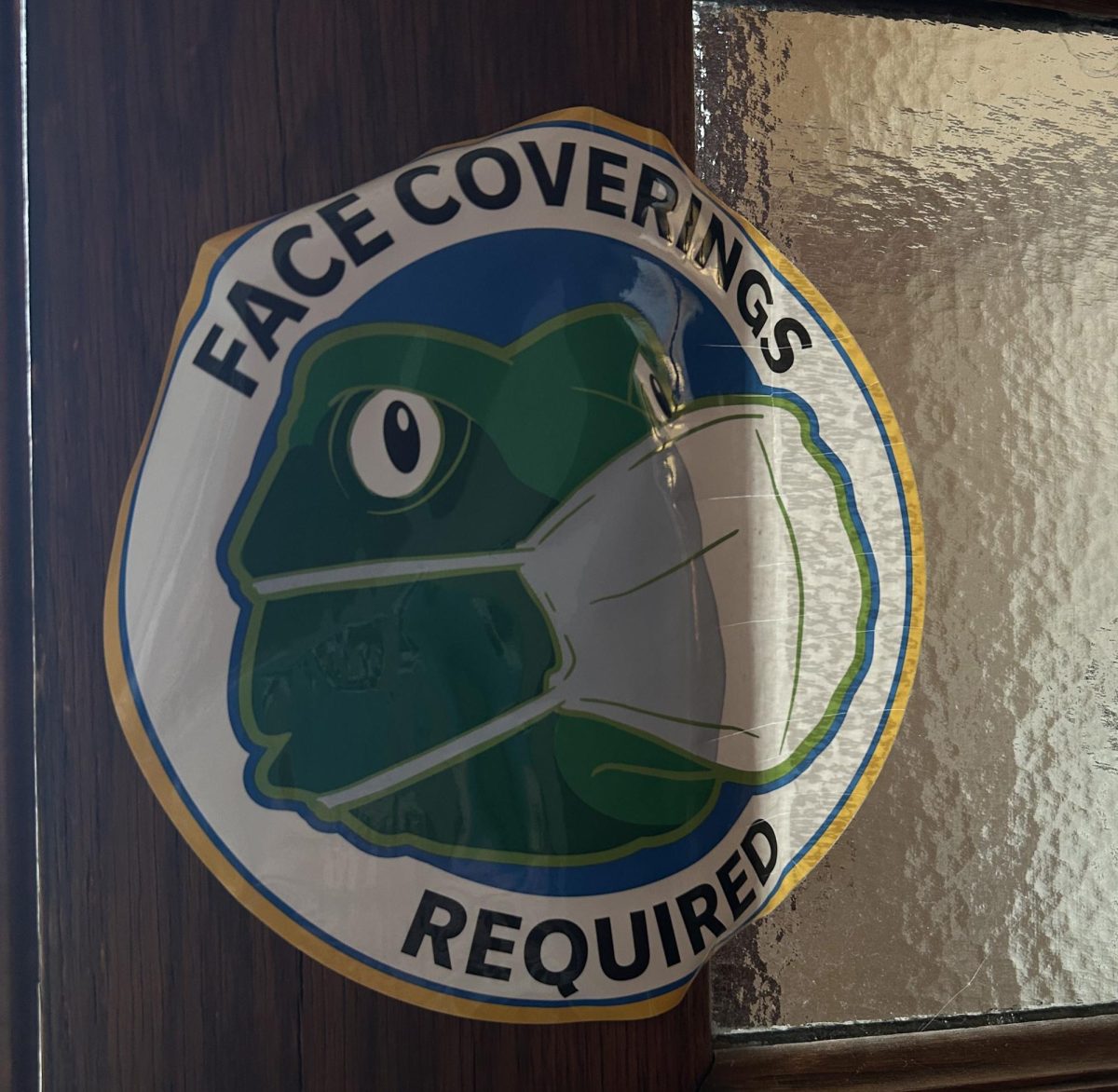By RACHEL BELSON
Contributing Writer
belsonr@allegheny.edu
Interfaith Fellowship (IFF) hosted this year’s Faith Week, offering programs, performances, discussion and fellowship events from Monday, Jan. 27 to Saturday, Feb. 1. Faith Week allows students to discuss the issues each religion faces, as well as raise awareness about the diversity of religions present on campus. This year’s theme was “Human Rights Get Spiritual.”
In the past, this event was referred to as Religious Awareness Week. Students decided to change the name to Faith Week, in 2006, to better reflect students’ faith commitments, according to Chaplain Jane Ellen Nickell.
IFF held a luncheon entitled “Religious Expression in Public Space,” followed by Project Nur’s presentation of Assistant Professor Reem Hilal’s discussion on “Islamaphobia” and Allegheny Christian Outreach’s discussion of the persecution of Christians.
“Islamaphobia” was presented by Hilal to raise awareness of the constant fear Americans have of Muslims and Arabs. Her discussion began with the different definitions and discourses of the term ‘Islamaphobia.’
The media makes it easier to target different groups, like Muslims, as the force behind different terrorist attacks, such as the Oklahoma City bombing or the attacks on 9/11. Hilal believes this originated from the history of how the West World deals with the East World, and without either side being able to realize and understand this, there will be no improvements.
“After the 9/11 attacks, now it is almost cemented the terrorist equates someone from the Middle East,” said Hilal.
Hilal stressed that terrorism needs to be known more as an act and not as people.
“Any group of people can be capable of [the act of terrorism],” she said.
Hilal stressed that the focus needs to be on the reasons behind the act not the group of people associated with it. It is human beings that are all suffering when the nation goes through a crisis, such as 9/11.
“It’s not just about policy change, which is really important. It’s about creative ways of changing those issues,” said Hilal. “There needs to be recognition of one, a history of interaction and how history has played out, and what are the consequences of that history?”
“There are international relationships, decisions, that have consequences on different parts of the world that have to be recognized, and if you don’t recognize that, then that means that anybody who has a problem, any kind of resistance is always seen as illegitimate, and that’s a problem.”
Hilal asks that people consider not what the Middle East does, but what are some of the issues that drive them to do those things? Countries need to realize that they play a role in this world and pay more attention to how they play that role. The United States, she says, needs to realize their elite status, and understand how they relate to other countries.
Hilal said that we do not move on from one prejudice to another, but one may capture our focus and seem the most prominent at the moment. As she had said before, Americans need to understand the history in order to resolve the problem.
“I’m hoping it will not get worse in terms of this one group [Muslims]. I think, unfortunately, what makes this time different is the media, the internet; you can do so much more to highlight one group more than other groups,” said Hilal. “I hope people are receptive to this idea, because it really can have dangerous consequences for a lot of groups.”
Another Faith Week event was ACO’s group discussion on Christianity around the world. Mollie Little, ACO’s adviser, said that the group decided to discuss the topic of Christianity and how it is dangerous to be openly Christian in some areas of the world.
“Christians are the most persecuted religious group in the world today, but these human rights violations seldom are reported in the mainstream news, and even passionate, active Christians often aren’t aware of the conditions and realities that their Christian brothers and sisters face in other parts of the world,” said Little. “We thought it was important to connect our students with these stories.”
The group showed three short clips about Christians around the world and led a discussion following the viewing.
Faith Week held nine events in total, ranging from the discussion of Islam to the history of witch hunts. Other events included a discussion about Catholicism and pro-life issues, similarities among religions, discrimination in sports and perception of human rights.







